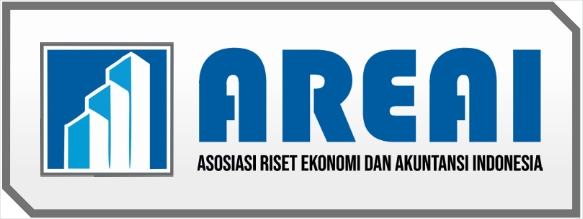INNOVATION AND ACCREDITATION AT REGIONAL GENERAL HOSPITAL OF PROF. DR. H.M. ANWAR MAKKATUTU, BANTAENG REGENCY
DOI:
https://doi.org/10.55606/iceb.v2i1.275Keywords:
Accreditations, Hospital, InnovationsAbstract
Background: Customer demands related to quality service quality with fast, transparent, flexible services are getting higher, stronger, dynamic, and more complex. Hospitals need to carry out accreditation and innovation to exist in the midst of demands and competition. The purpose of this research is to explain and describe the implementation, and strategy of innovation and accreditation in hospitals.
Materials and methods: Qualitative research with a phenomenological approach, with informants from structural officials, heads of installations, innovation teams, doctors, nurses, and patients with a total of 20 people. Collecting data with interviews, observation, and documentation. The research was conducted from March 2022 to March 2023.
Results: The implementation of accreditation includes preparation, implementation of activities, assessment, and post-accreditation. Hospital accreditation includes hospital management groups, patient-focused services, patient safety goals, and national programs. The sustainability and consistency of the implementation of hospital accreditation activities are influenced by several things, including the perceived benefits, political value for the owner, the use of information and communication technology, accreditation regulations, collaboration, and integration of all elements. Innovation is carried out utilizing meeting problem acquaintances, accommodating unit/installation innovation designs, forming an innovation team; mentoring, training, and innovation competitions. Accreditation and innovation strategies include making regulations on decisions by owners or regional heads, synchronization with strategic plans, ongoing technical guidance or guidance, monitoring evaluation and regular reporting, surveys on compliance with policies, guidelines, guidelines, and standard operating procedures, and development of regular assessments. hidden, a statement from the hospital leadership to carry out accreditation and innovation. as well as team collaboration
Conclusion: Accreditation and innovation improve service quality, speed, and efficiency. Strategy adaptation is needed so that accreditation is sustainable and fosters a culture of innovation.
References
Abimayu, A. (2022). Peran Konowledge dan innovation Capability dalam Mengakselerasi Kinerja UKM. Jurnal Ilmiah Bisnis Dan Ekonomi Asiia, 16(2), 195–204. https://doi.org/10.32812/jibeka.v16i2.433
Al-alawy, K., Azaad Moonesar, I., Ali Mubarak Obaid, H., Gaafar, R., & Ismail Al-Abed Bawadi, E. (2021). A Mixed-Methods Study to Explore the Impact of Hospital Accreditation. Inquiry:The Journal of Health Care Organization, Provision, and Financing, 58, 1–8. https://doi.org/10.1177/0046958020981463
Algahtani, H., Aldarmahi, A., Manlangit, J., & Shirah, B. (2017). Perception of hospital accreditation among health professi- onals in Saudi Arabia. Annals of Saudi Medicine, 34(4), 326–332.
Algunmeeyn, A., Alrawashdeh, M., & Alhabashneh, H. (2020). Benefits of applying for hospital accreditation: The perspective of staff. Journal of Nursing Management, 28, 1233–1240. https://doi.org/10.1111/jonm.13066
Anabila, P., Anome, J., & Kwadjo Kumi, D. (2018). Assessing service quality in Ghana’s public hospitals: evidence from Greater Accra and Ashanti Regions. Total Quality Management and Business Excellence, 1–14. https://doi.org/10.1080/14783363.2018.1459542
Ananda, B. R., Putera, R. E., & Ariany, R. (2020). Inovasi Pelayanan Kesehatan Di Rumah Sakit Umum Daerah Kota Pariaman. Publik (Jurnal Ilmu Administrasi), 8(2), 167–179. https://doi.org/10.31314/pjia.8.2.167-179.2019
Andres, E. B., Song, W., Song, W., & Johnston, J. M. (2019). Can hospital accreditation enhance patient experience? Longitudinal evidence from a Hong Kong hospital patient experience survey. BMC Health Services Research, 19(623), 1–9. https://doi.org/10.1186/s12913-019-4452-z
Arundel, A., Bloch, C., & Ferguson, B. (2019). Advancing innovation in the public sector : Aligning innovation measurement with policy goals. Research Policy, 48(3), 789–798. https://doi.org/10.1016/j.respol.2018.12.001
Babu, F., & Thomas, S. (2020). The relationship between total quality management practices and organisational image in the hospital industry: An empirical examination. International Journal of Productivity and Quality Management, 29(1), 1–23. https://doi.org/10.1504/IJPQM.2020.104517
Baharun, R., Mi, T. J., Streimikiene, D., Mardani, A., Shakeel, J., & Nitsenko, V. (2019). Innovation in healthcare performance among private brand’s healthcare services in small and medium-sized enterprises (Smes). Acta Polytechnica Hungarica, 16(5), 151–172. https://doi.org/10.12700/APH.16.5.2019.5.9
Camillo, N., Oliveira, J., Bellucci Jr, J., Cervilheri, A., Haddad, M., & Matsuda, L. (2016). Accreditation in a public hospital : perceptions of a multidisciplinary team. Rev Bras Enferm [Internet]., 69(3), 423–430. https://doi.org/http://dx.doi.org/10.1590/0034-7167.2016690306i
Cousin, B. (2018). DESIGN THINKING : ORGANIZATIONAL LEARNING IN VUCA ENVIRONMENTS. Acadamic of Strategic Management Journal, 17(2).
De Oliveira, P. B., Spiri, W. C., Dell’acqua, M. C. Q., & Da Silva Demoro Mondini, C. C. (2016). Comparison between the accredited and nonaccredited public hospital working environments. ACTA Paulista de Enfermagem, 29(1), 53–59. https://doi.org/10.1590/1982-0194201600008
Ehlers, L. H., Jensen, M. B., Simonsen, K. B., Rasmussen, G. S., & Braithwaite, J. (2017). Attitudes towards accreditation among hospital employees in Denmark: A cross-sectional survey. International Journal for Quality in Health Care, 29(5), 693–698. https://doi.org/10.1093/intqhc/mzx090
Elsbach, K. D., & Stigliani, I. (2018). Design Thinking and Organizational Culture : A Review and Framework for Future Research. Journal of Management, 44(6), 2274–2306. https://doi.org/10.1177/0149206317744252
Endah, K. A. (2018). The Effectiveness of Hospital Accreditation Implementation as a Protection Effort on Patient Information Rights. SHS Web of Conferences, 54, 1–6. https://doi.org/10.1051/shsconf/20185403014
Espacios, H. R., Autores, L. O. S., Lubnina, A. A., Shinkevich, M. V, Yalunina, E. N., Gaidamashko, I. V, Savderova, A. F., & Komissarova, M. A. (2018). Innovative strategy for improving the efficiency of industrial enterprises management.
Falstie-Jensen, A. M., Bogh, S. B., & Johnsen, S. P. (2018). Consecutive cycles of hospital accreditation: Persistent low compliance associated with higher mortality and longer length of stay. International Journal for Quality in Health Care, 30(5), 382–389. https://doi.org/10.1093/intqhc/mzy037
Ghadami, L., Masoudi Asl, I., Hessam, S., & Modiri, M. (2019). Developing hospital accreditation standards: Applying fuzzy DEMATEL. International Journal of Healthcare Management, 1–9. https://doi.org/10.1080/20479700.2019.1702307
Ginting, D., Fentiana, N., Rajagukguk, T., & Wahyudi, H. (2019). Gaya Kepemimpinan dan Komitmen Paramedis dalam Implementasi Akreditasi Rumah Sakit Versi SNARS. Jurnal Ilmiah Universitas Batanghari Jambi, 19(3), 504–508. https://doi.org/10.33087/jiubj.v19i3.642
Government Regulation. (2000). Republic of Indonesia Government Regulation Number 101 of 2000 concerning Education and Training for Civil Servant Positions.
Government regulations. (2017). Republic of Indonesia Government Regulation Number 38 of 2017 concerning Regional Innovation.
Greco, A., Eikelenboom, M., & Long, T. B. (2021). Innovating for sustainability through collaborative innovation contests. Journal of Cleaner Production, 311, 1–9. https://doi.org/10.1016/j.jclepro.2021.127628
Halvorsen, T., Hauknes, J., Miles, I., & Roste, R. (2005). Innovation in the Public Sector: on the Differences Between Public and Private Sector Innovation. Publin Report D, 9(64).
Hapsari, Y., & Sjaaf, A. C. (2019). Effect of Hospital Accreditation on Patient Safety Culture and Satisfaction: A Systematic Review. The 6th International Conference on Public Health Best Western Premier Hotel, Solo, Indonesia, October 23-24, 2019, 279–279. https://doi.org/10.26911/the6thicph.04.41
Joseph, S. (2018). The Effect of Accreditation on Patient Satisfaction in Public Health- care Delivery : A Comparative Study of Accredited and Non-accredited Hosp- itals in Kerala. 10(2), 123–137.
Decree of the Minister of Health of the Republic of Indonesia. (2022). Decree of the Minister of Health of the Republic of Indonesia Number HK 01.07/MENKES/1128/2022 Concerning Hospital Accreditation Standards.
Kusumawardhani, O. B., Rejeki, M., Octaviana, A., Nurcahyaningsih, I., & Ramadhani, R. (2020). Analisis Pengaruh Pemahaman Akreditasi dan Karakteristik Individu Terhadap Kinerja Karyawan Medis dan Non Medis di RSUD Kabupaten Karanganyar. Indonesian Journal of Hospital Administration, 3(2), 74–79. https://doi.org/10.21927ijhaa.2020.3(2).74-79
Miles, M. B., Huberman, A. M., & Saldana, J. (2014). Qualitative Data Analysis a Methods Sourcebook (3rd ed.). Sage Publication.
Mohebbifar, R., Rafiei, S., Asl, A. M., Ranjbar, M., & Khodayvandi, M. (2017). Association between hospital accreditation and patient satisfaction: A survey in the Western Province of Iran. Bangladesh Journal of Medical Science, 16(1), 77–84. https://doi.org/10.3329/bjms.v16i1.31137
Mosadeghrad, A. M., & Ghazanfari, F. (2021). Developing a hospital accreditation model: a Delphi study. BMC Health Services Research, 21(879), 1–16. https://doi.org/10.1186/s12913-021-06904-4
Muluk, M. R. K. (2008). Knowledge Management (Kunci Sukses Inovasi Pemerintah Daerah). Banyumedia.
Oliveire, J. L. C. de, & Matsuda, L. M. (2016). Benefits and difficulties in the implementation of hospital accreditation: The voice of quality managers*. Escola Anna Nery, 20(1), 63–69. https://doi.org/10.5935/1414-8145.20160009
Ramli, M. (2022). Electronic Goverment dalam Pelayanan Pubik. PT RajaGrafindo Persada.
Republic of Indonesia Law. (2009). Republic of Indonesia Law Number 25 of 2009 concerning Public Services
Sedarmayanti. (2004). Good Governance (kepemerintahan yang baik): Membangun Sistem Manejemen Kinerja Guna Meningkatkan Produktivitas Menuju Good Governance (Kepemerintahan yang Baik). CV Mandar Maju.
Shortell, S. M., O’Brien, J. L., Carman, J. M., Foster, R. W., Hughes, E. F., Boerstler, H., & O’Connor, E. J. (1995). Assessing the impact of continuous quality improvement/total quality management: concept versus implementation. Health Services Research, 30(2), 377–401. http://www.ncbi.nlm.nih.gov/pubmed/7782222%0Ahttp://www.pubmedcentral.nih.gov/articlerender.fcgi?artid=PMC1070069
Sisca, Simarmata, H. M. P., Grace, E., Purba, B., Dewi, I. K., Silalahi, M., Fajrillah, Sudarso, A., & Sudarmanto, E. (2021). Manajemen Inovasi (J. Simarmata (ed.); 1st ed.). Yayasan Kita Menulis.
Syamsuddin, R., & Fuady, M. I. N. (2020). Upaya Penguatan Badan Penelitian dan Pengembangan serta Inovasi Daerah di Kota Palopo. Wawasan Yuridika, 4(1), 63–79. https://doi.org/10.25072/jwy.v4i1.326
Yanuar, R. M. (2019). Inovasi Pelayanan Publik (Studi Kasus: Public Safety Center (PSC) 119 Kabupaten Bantul Sebagai Layanan Kesehatan dan Kegawatdaruratan). Jurnal Ilmu Pemerintahan, 04(01), 1–20. https://doi.org/https://doi.org/10.31629/kemudi.v4i1.1335
Yousefinezhadi, T., Osadeghrad, A. M., Arab, M., Ramezani, M., & Akbari Sari, A. (2017). An analysis of hospital accreditation policy in Iran. Iranian Journal of Public Health, 46(10), 1347–1358.
















